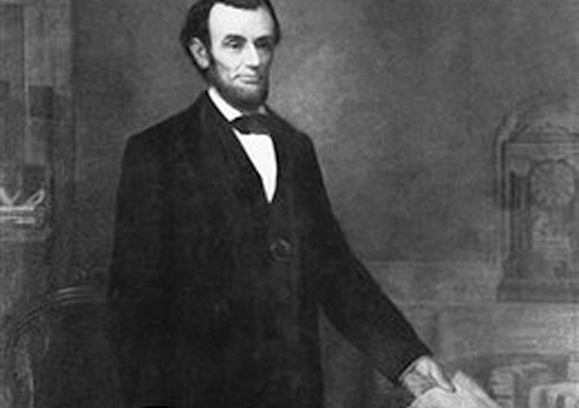“First determine that the thing can and shall be done and then we shall find the way.
– Abraham Lincoln
As we go to press, we learn that Lincoln received 12 Oscar nominations – more than any other film this year. It’s timely then, that we feature Daniel Day-Lewis on our cover.
Day-Lewis is an incredible actor who first came to prominence in a triumph-over-adversity movie called My Left Foot, the story of Christy Brown. A Dubliner afflicted with cerebral palsy, despite only being able to move his left foot Christy Brown became a writer and artist.
I won’t spoil Patricia Danaher’s in-depth interview with Day-Lewis by revealing too much here, but it’s enough to say that his portrayal of President Lincoln is such that you forget that there’s an actor involved. You become fully immersed in the drama as the 16th President methodically fights to pass the 13th Amendment, which would abolish slavery.
In Lincoln’s day, the amendment was immensely unpopular and faced fierce opposition, but looking back we see that it was necessary. He did what was right. He did what was hard.
On January 31, 1865, the 13th Amendment was passed by the House, and soon the bloodiest war in America’s history would be over.
Over 650,000 soldiers died during the four years of the conflict, and a fair share of them were Irish. Michael Burke, in his story on Green-Wood Cemetery, introduces us to such colorful Civil War heroes as “Fighting Tom,” General Tom Sweeny from County Cork, and others.
We cannot look at our history without marveling at the human spirit. The Irish too were enslaved, Denis O’Brien, founder of Digicel, reminded us in his address at our annual Business 100 awards in December. Thousands of young men and women were sold into slavery by Oliver Cromwell and transported to the Caribbean to work on the sugar and tobacco plantations.
In another triumph-over-tragedy story, Mary Pat Kelly writes that Derry City, a place that suffered much during the Troubles, is enjoying “a brand new day” because people put aside their grievances and worked together to make it so.
President Lincoln was himself no stranger to tragedy, but he didn’t allow it to lessen his resolve.
He deeply mourned the loss of his son Willie, who died at age 11 of typhoid fever. “My poor boy, he was too good for this earth. God has called him home. I know that he is much better off in heaven, but then we loved him so. It is hard, hard to have him die!” he is recorded as having said. It was the second loss of a child for the Lincolns – an elder son had died the year Willie was born.
The grief of losing a child is untenable.
Yet, in a story by Kelly Fincham, we see how the parents of one child, Rory Staunton, focused their grief on changing medical procedures so that other children would not suffer the same fate as their 12-year-old son, death by misdiagnosis.
“Redemptive truth telling,” Jim Dwyer, who has written about Rory’s case in the New York Times, calls the Stauntons’ campaign.
The death of children was very much on our minds during the holidays as we grappled with the horrific massacre of 20 schoolchildren and six adults gunned down by a mentally disturbed man in Newtown, Connecticut on December 14.
Since that incident, 400 Americans have died from gunshot wounds. Just two days before Christmas, another man with an assault rifle, a former prisoner who had served time for killing his grandmother, a man who should not have had access to weapons, burned down his house and shot and killed two volunteer firefighters who arrived to put out the blaze.
Yet, despite all of these deaths, the country is deeply divided on the 2nd Amendment right to keep and bear arms, with strong emotions on both sides.
We have to get through these recent tragedies to a place where senseless assaults can’t happen any more. In the coming days, President Obama and his team have to face down some tough opposition to changing the gun laws. Vice President Joe Biden, as we go to press, is meeting with the very powerful National Rifle Association, who are against tightening the laws on gun control.
In addressing the 2nd amendment, we need our political leaders to do what is right, though it be hard. President Lincoln too had many challenges to overcome, including a House divided, before the 13th amendment was passed.
Now is the time for fearless leadership. Lincoln changed the course of American history, and the leaders of this generation can do so too.
In his words: “First determine that the thing can and shall be done and then we shall find the way.”
Instead of participating in an endless debate about whether the gun lobby is too strong, whether the house is too divided, we should look to Lincoln’s example and press forward – recognizing the obstacles, but not permitting them to keep us from making progress.
One hundred and fifty years down the line, this will be seen as the necessary moment of our time.
The future and the past demand nothing less of us.
Mórtas Cine.


Leave a Reply